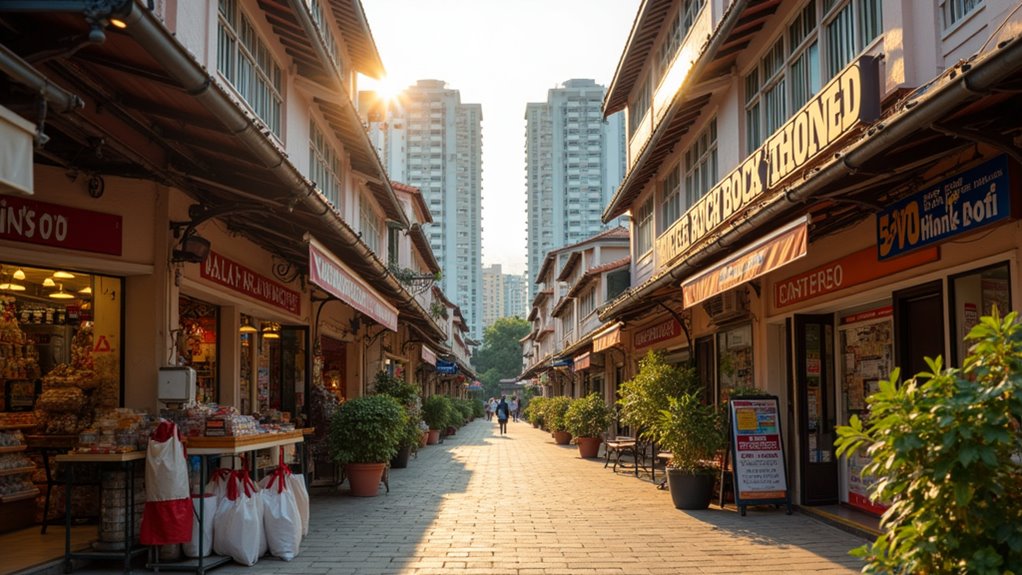As privately owned heartland shop rental rates have more than doubled over the past year, with average rents per square foot in older estates surging from $5.70 in 2020 to $11.40 in the first half of 2025, Singapore’s Housing Development Board has announced a strategic policy shift to selectively acquire privately owned commercial units and increase the supply of shops leased directly by the government agency.
The intervention targets Singapore’s 15,500 HDB shops, which comprise approximately 8,500 privately owned units and 7,000 HDB-rented establishments distributed across heartland estates. Since ceasing shop sales to private owners in 1998, HDB has focused exclusively on direct leasing arrangements to businesses, creating a dual ownership structure that has produced markedly different rental trajectories during recent market volatility.
Analysis of rental patterns reveals significant disparities between privately owned and HDB-managed commercial spaces, with rents at HDB-leased shops increasing only 1.3% to 3.3% annually over the past three years while 90% of these units experienced no rental increases over five years.
HDB-managed shops show remarkable rent stability with 90% experiencing no increases over five years compared to volatile private market rates.
The sharp increases in privately owned units correlate with higher transaction volumes of smaller-sized spaces and owners’ tendency to rent to highest bidders, creating market pressures that affect essential service availability in residential areas. This mirrors broader housing market dynamics where transaction volumes for residential properties are estimated to reach 26,000 to 27,000 units annually amid competitive conditions.
HDB’s targeted acquisition strategy emphasizes optimizing supply where essential services are lacking rather than acquiring shops at peak market prices, which officials consider inefficient use of taxpayer funds. The strategy reflects HDB’s preference to allow market forces to operate with minimal intervention while addressing specific service gaps. To further support essential healthcare services, HDB will implement the Price-Quality Method for awarding GP clinic tenders starting in August 2025, extending beyond the current use for dental clinics in new neighbourhood centres.
The government agency manages its leased units through three-year tenancies with rental renewals determined by professional valuers who consider nearby shop rents and prevailing market conditions, maintaining stability for businesses providing vital community services.
Among the 8,500 privately owned shops, 740 operate under 30-year leases while 7,700 hold 99-year lease arrangements, with over 80% of short-term lease units scheduled to return to HDB management within the next decade.
This natural transition, combined with selective acquisitions and increased direct leasing supply, aims to moderate rental inflation while preserving market mechanisms that support business diversity and community access to essential retail services across Singapore’s heartland developments.





